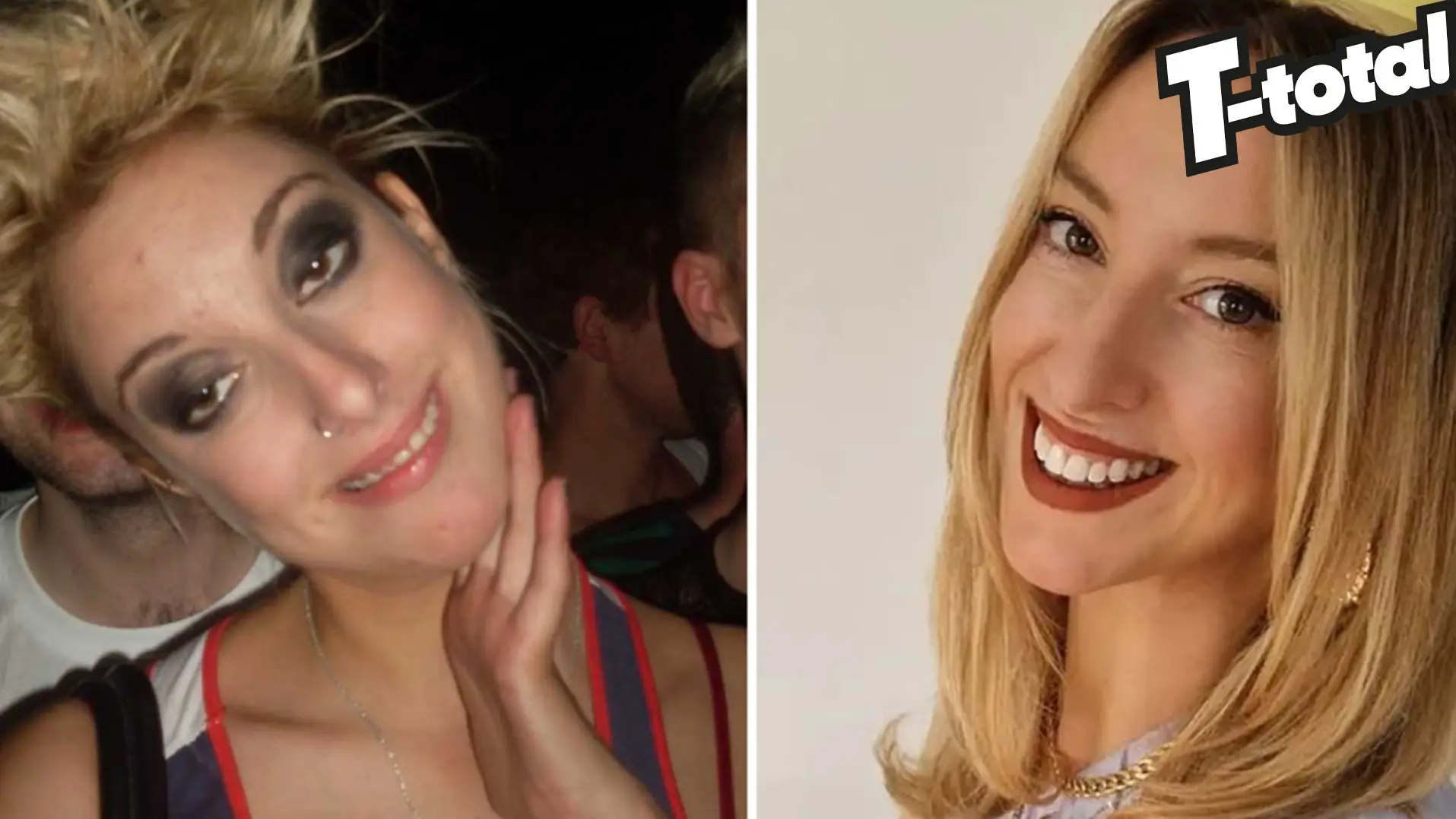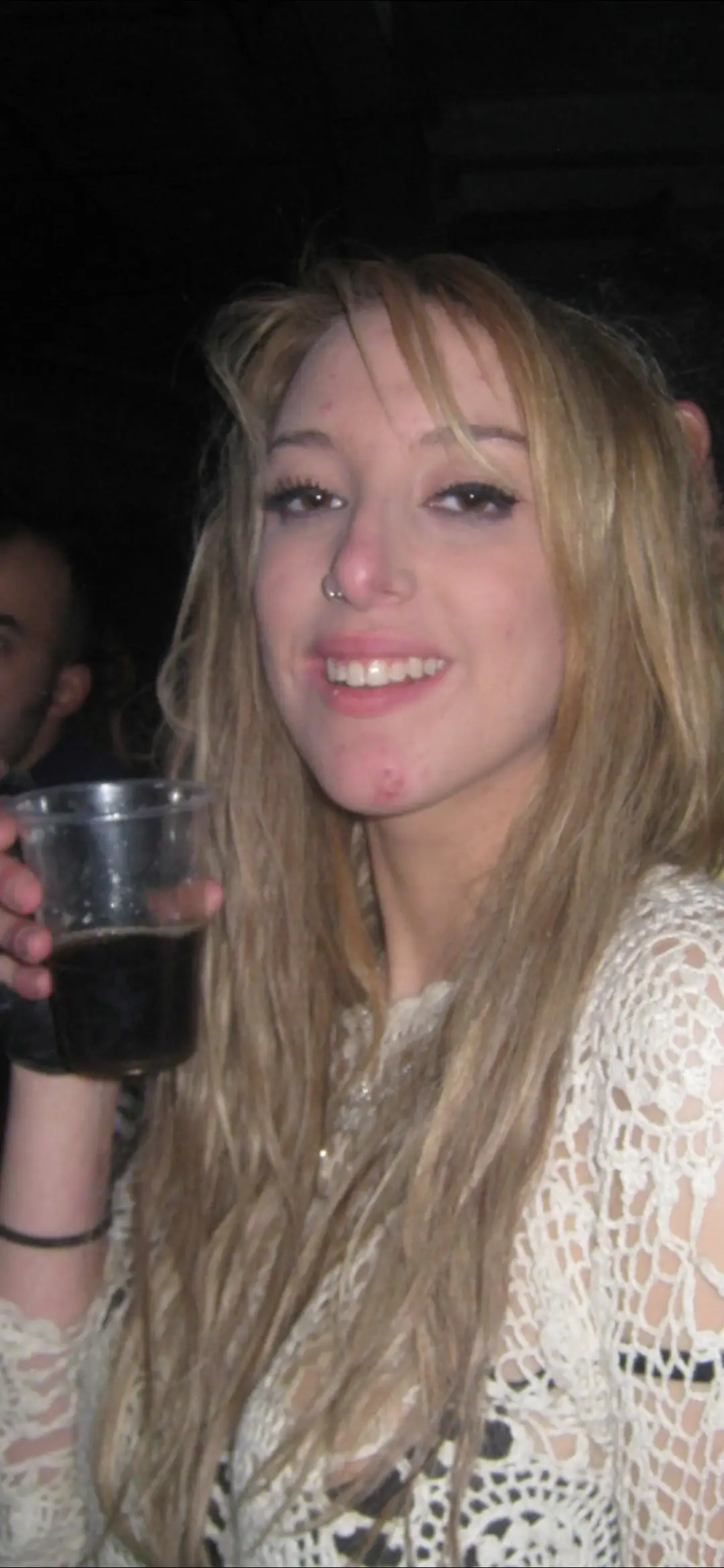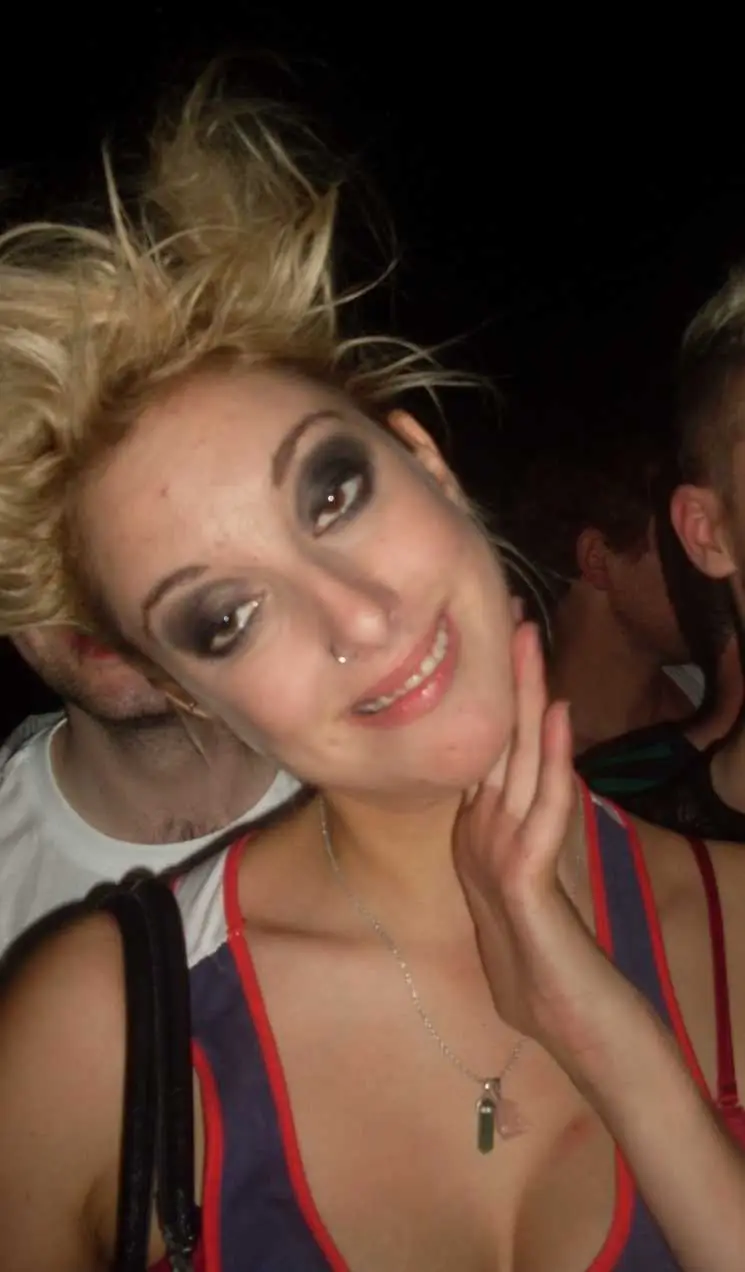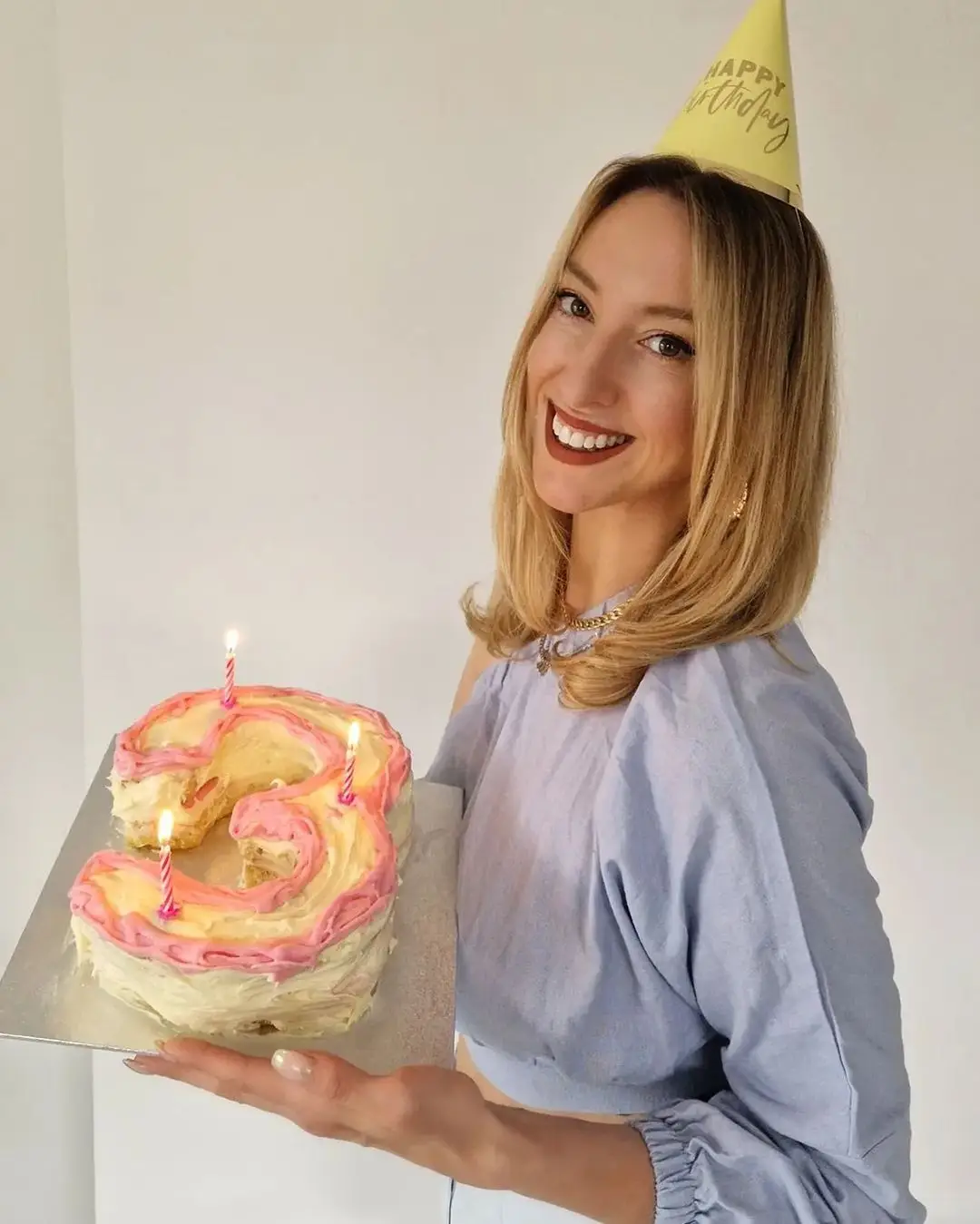
Trigger warning - this article discusses addiction and suicide
Abi Feltham was sitting in her childhood bedroom in the middle of the pandemic, when she finally decided to give up alcohol.
After drinking nearly every day since the age of 14, Abi, then 32, had spent almost 20 'chaotic' years battling a debilitating addiction.
Following the breakdown of relationships, several job losses, and an attempt to take her own life, Abi had what she describes as an 'epiphany'.
Advert
Now 36, she tells Tyla about the moment she hit 'rock bottom' and how she turned her life around in the space of four years.

"I first realised I had a drinking problem in my early twenties, when I was drinking a lot more than my friends," says Abi.
"If we went on a night out, I always drank more than everyone else. And the next day, I couldn't wait to start drinking again; I was always the one to suggest having a drink with breakfast.
"I also drank a lot at home. I'd have a couple of bottles of wine a night, nobody else was doing that."
Throughout her twenties, Abi spent a lot of time partying and backpacking across the world. But it had a drastic impact on her mental health.
"I was partying all the time and doing a lot of backpacking, basically boozing my way around," she explains.
"As I became more and more dependant on alcohol, the worse my mental health was.
"I couldn’t go a day without drinking, absolutely not. In fact, I found it difficult to go several hours without drinking and I was deeply depressed.
"I just didn’t want to be here. I definitely recognised there was an issue but I didn’t know how to change it. The notion of sobriety or the fact I could change my life didn’t occur to me at all."

In the years that followed, Abi greatly struggled with her mental health and was admitted to hospital after a suicide attempt.
"I didn’t see a way out," says Abi.
"I had a breakdown of a really significant relationship and I also turned to hard drugs in that time because alcohol wasn’t enough anymore. I was basically doing anything to avoid facing my problems and myself."
It was the pandemic that finally led to Abi addressing her addiction.
Sitting in her childhood bedroom and clearing out empty bottle upon empty bottle of booze, she realised she had to make a change.
"Just before the pandemic hit I was working in Canada, but I lost my job because I went to work drunk and tried to seduce my boss. It was very embarrassing," she says.
"Everyone else was losing their jobs because of Covid, so under the guise of that I moved home and started living with my parents again.
"As soon as I got home, I carried on drinking. I went on a two-week bender because I thought 'oh we’re in the pandemic, this isn’t real life'.
"At the end of it, I remember clearing out the bottles from my childhood bedroom and putting them in a big rubbish bag, dropping the bag on the floor and thinking, 'what has my life become?'
"I had a moment of pure clarity and I realised I had a choice. I’d had rock bottom after rock bottom and then I just realised in one moment that it didn’t have to be that way. I could make a choice. Alcohol was the thing that was holding me back and always standing in my way.
"If I ever wanted a shot at happiness, I had to remove alcohol. There was no way I could have a happy future with alcohol in it. I wanted to be happy and I wanted to live."

On 1 April 2020, Abi gave up alcohol for good.
"My friends thought it was an April Fools' joke, but when they realised I was serious, they were relieved.
"There's been loads of difficult moments since then. I was using alcohol as a solution to my problems. So when I stopped drinking, all the problems and issues were still there, but I didn’t have the drink to make them disappear, and I had to deal with them."
Abi also joined AA after two years of being sober, to receive extra support.
"When I quit, I went cold turkey, which I now know is extremely dangerous," she warns.
While Abi explains she quit drinking to improve her life and mental health, there were a number of 'unexpected changes' that she experienced.
"Everything was unexpected, I didn’t know how I would feel," she says.
"Since being sober, I’ve been able to hold down a relationship, and I’ve never been able to do that, I've now got a really healthy relationship.
"I can commit to things, I've developed a sense of self and identity, too. Being drunk for all those years, I had no idea who I was.
"My sense of self and self-esteem has also sky rocketed, I had no idea these were things that would come with sobriety.
"If I hadn't quit drinking, I’m not sure I would have lived to tell the tale or survived it. The way I was going, I would be surprised if I was alive today."

Despite Abi vastly improving her wellbeing after ditching alcohol, she was dealt another health challenge just a few months ago.
After suffering from migraines, sickness and double vision, Abi was diagnosed with incurable brain cancer.
"I'm grateful for the timing and that it happened when I was sober," says Abi.
"I'm very proud of myself for having these four years of growth, I've built skills to be able to deal with this experience.
"I’ve had two brain surgeries and when I went into my second, a neurosurgeon said I would be in for weeks recovering.
"But because I've been on this journey for four years, looking after myself, treating my mind and body with kindness, I was out in two days."
Abi explains that surgeons have removed 90 percent of the tumour, and she's undergoing more treatments to remove the remainder.
"It’s probably going to kill me eventually, they’ve given me an estimate of 15 years to live," says Abi.
"I compare how I think now to how I thought before I was sober. I was just wishing the days away, I hated living and I couldn’t wait for every day to be over.
"But now, every day is a gift. I find value in every moment."
If you want to discuss any issues relating to alcohol in confidence, contact Drinkline on 0300 123 1110, 9am–8pm weekdays and 11am–4pm weekends for advice and support.
Or alternatively, visit drinkaware.co.uk/alcohol-support-services.
If you are struggling in any way call Samaritans for free on 116 123, visit samaritans.org - or write down your thoughts in an email to [email protected].
Topics: Food and Drink, Health, Real Life, Mental Health, Alcohol, UOKM8